Last February, I devoted a radio program episode to that very topic. I examined the Word of Wisdom, just letting the words say what they say, not reading anything into them. And the inescapable conclusion was that the Lord recommends a plant-based diet. That doesn’t mean going vegan. I’m certainly not grilling a veggie burger as part of my holiday celebration. The meat I grill will be the real deal. Sparingly doesn’t mean forbidden. At the same time, sparingly does mean not often and certainly not every day. The Word of Wisdom promises significant blessings to those who keep it. And we choose whether or not we receive those blessings. That’s part of the freedom we enjoy because of veterans who sacrificed theirs. They gave us the freedom to eat. The freedom not to eat  Now I can hear some of you getting ready to quote D&C 49:18. Rest assured I’m not going to suggest we transform the traditional start of summer into some vegan festival. As I just said a moment ago, I’m eating real meat this weekend. And I won’t feel the slightest pang of guilt over it. This is the freedom we enjoy because of our veterans’ sacrifice — the freedom to eat what we want (provided of course the pandemic hasn’t sparked a shortage). But freedom runs both ways. The freedom to do something is also the freedom not to do that same something. And exercising the one freedom can make the other freedom more precious. For example, since I discussed the Word of Wisdom back in February, I’ve limited my meat consumption to no more than 20% of my meals each week. That means at least 17 of my meals each week are meatless. And I’ve seen some significant weight loss. I’m now about 14 pounds lighter than I was just three months ago. But I’ve also taken more pleasure in eating meat than I did previously. Because it happens less often, it has become more special. My experiences pleasing my palette with the taste and texture of meat have truly become precious to the point of enriching my life. The absence of guilt  That scenario has contributed to an anticipation for future meaty meals, like the premium hot dogs I have planned for Memorial Day. Of all the meat products I could select, hot dogs are probably one of the worst in terms of promoting health, if not the absolute worst. But I eat meat so infrequently now, it doesn’t really matter. That’s why I don’t feel even a remote pang of guilt over my anticipated consumption. Exercising the freedom not to eat meat has made exercising the freedom to eat meat more enjoyable. And you should never feel more guilty over experiencing more joy in life. When you think about it, you could extend that relationship to other areas of life as well. The pandemic has limited many of us in our daily activities, forcing us to exercise the freedom not to do this or that. When the time comes that we can exercise the freedom to do those things formerly restricted to us, the experience will be truly liberating and precious. The “new normal”  If you would have approached me a year ago about embracing a mostly meatless diet, I would have laughed at you. But now I don’t think I could ever go back. The weight loss has certainly motivated me in my mostly meatless direction, but the delight in the freedom to eat meat after exercising the freedom not to eat meat has pleasantly surprised me. That’s actually a bigger benefit for me than the weight loss. It makes me wonder what other delights I might find in that dichotomy of freedom both to do and not to do something. This Memorial Day, as we celebrate freedom, may I suggest we include our freedom to eat in that reflection? Consider how you’ll use that freedom to reap all the blessings of living all the Word of Wisdom. When you own your life, you accept the past for whatever it is and look ahead to better days to come. And that will bring you more joy in your journey.
0 Comments
We focus more on cardiovascular exercise when scientific studies galore have shown real weight loss correlates with diet and strength training exercise. Likewise, many of us focus on saving and cutting expenses when real financial improvement comes with increasing our earnings. We focus so much on one side of the financial equation that we miss the effect of the other side. And when you look at both sides, it’s not hard to see it’s bigger in than out. Do the math  Let’s do a little math. Many people approach improving their finances by cutting costs. Let’s see how well that plays out with this example: Suppose your job pays $35,000/yr. You pay tithing and spend $22,000/yr to live after the state takes its portion. You were eating out once a week at $10/meal, but now you’ll cut that back to once a month. So you’ll spend $120 for the year instead of $520, a savings of $400. And let’s say you secure a friend to give you the $20 haircut you get every three months. Now you’ve saved an extra $80. And you decide to wear more sweaters in the winter to cut back on your heating bill, saving you another $200. So overall you’ve saved $1000 for the year. That sounds impressive. After all, most people don’t consider a full grand chump change. But that’s what it is when you consider the effect of increasing your income. Let’s say you pursue one of the best ways to increase your income — get a new job. Your new gig pays $45,000/yr — a not uncommon increase. Without changing your lifestyle, you’re still spending $22,000/yr to live, but now after tithing and the state, you’ve got an extra $7250/yr. Still think that $1000 you had to scrimp to save isn’t chump change? In this hypothetical but still very realistic scenario, cutting back gave you an extra 3% in spending power. But getting that new job gave you an extra 21%! The effect of increasing your income greatly outweighs the effect of saving. Get your hustle on 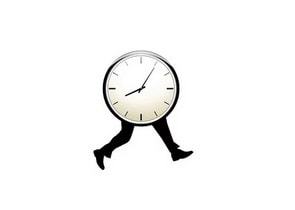 Now, that doesn’t mean you shouldn’t save for a rainy day. It does mean you shouldn’t rely solely on cutting back to improve your finances. The core of your approach should address what’s coming in, not what’s coming out. And it’s easier than you think to get a better job. One class in the Church’s welfare program teaches people how to get a job if you’re unemployed or how to get a better job if you already have one. Many who’ve taken the class get results in less than 30 days. Think of it! If you’re willing to do the work, you could be earning significantly more by this time next month. Transitioning to new employment isn’t the only way to bump your income significantly. Many people who don’t want to replace their current job augment it by engaging in side hustles. They trade time for money (consulting, editing, and yard work are examples) or build a business (like making jewelry or writing a book). Not everyone succeeds in starting their own business, but some people have quit their day job because they created a better one for themselves. Pursue your options  You’ve got lots of options and lots of opportunity to pursue whichever you feel is best for you. The Lord wants all of us to have prosperity, because then it becomes easier to raise families, serve in the Church and our communities, and help other people. I truly believe your prosperity is an important element of your best life. So consider your ways in approaching your own finances (Haggai 1:5-7) . By all means, save where you can. Just recognize your influence over your spending power is bigger in than out. What will you do to improve your income? Focusing your efforts there will bring you more and better success. And that will bring you more joy in your journey.
That said, I’m not going to approach exercise in the usual way. Instead, I’ll share how you can improve an exercise habit whether you exercise not at all or everyday. All you need to do is just one more. Determine your motivation  First, let me start where everyone else starts — a recognition of our highly litigious society. Please consult with a competent physician before starting any exercise program. That said, before you see a doctor, you need to establish some motivation. Without the proper motivation, you simply won’t follow any program long enough to integrate it permanently into your life. So get crystal clear on why you’re going to do this. Your reason must be compelling enough to push past the resistance to change you’ll surely encounter. And there’s no one-size-fits-all reason. Perhaps you hate having your weight limit you. It’s harder to bend over and stand up when you’re fat. Or perhaps you need to keep up with some younger folks in your life. That would currently help me as an Aaronic Priesthood advisor. Or maybe you need to shed those pounds so you can become more agreeable and progress in your dating journey. Argue with it all you want, but no rightness in any argument will diminish the truth that many singles have, do, and will continue to assess potential dating partners by physical appearance. Start simple  Yes, I know how it sounds, but it’s no less true. And if you don’t become more agreeable by losing the extra weight, the only way to progress in your dating journey is to find someone who’s satisfied with less. Those people are very few and far between, so relying on that proportion seriously decreases your probability of success. As I point out in my new book, you increase your probability of success by opening yourself to more possibilities for the successful outcome to occur. The best way to do that is to raise what you offer to a whole new level so that enough people find you agreeable. The more people that find you agreeable, the more possibilities you create for your successful outcome to occur, and thus the more probable your success will be. Now, before you despair at having to exercise to progress in your dating journey, there’s a simple way to get started. And it’ll improve your performance wherever you are on the fitness spectrum. It’s called the One More Principle. All you need to do is just one more than you did before. So if you’re just starting out, what you did “before” is zero. All you need to do today is one — one sit-up, one push-up, one whatever. When it’s time to do that exercise again, do just one more, which is two. And so on. Adopt the lifestyle 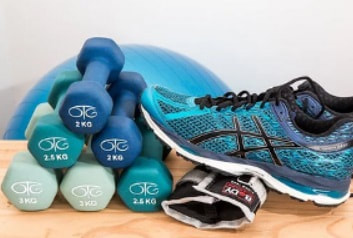 It’s amazingly simple, and yet, if you stay with it, you’ll be amazed at how easily you can ease yourself into an exercise habit you previously didn’t have. And here’s the real beauty: If you practice an exercise habit long enough, you’ll actually start wanting to exercise. Crazy, yes, but it’s true. I’ve personally experienced it. What before made me cower away in terror (What? I have to run how far?) became something that filled me with great anticipation (Oh yeah! I get to run that far!). And anyone can do one more. If you haven’t exercised in a while (or ever), you can do one push-up. If last time you did ten push-ups, now you can do eleven. If last time you did 100, this time you can do 101. By doing just one more, anyone can progress. And you can adopt the One More Principle in not just exercise but everything. Last time you wrote 2573 words, so this time you write 2574 words. Last week you went meatless for two meals, so this week you eat three meatless meals. When you do just one more as a lifestyle, you’ll find yourself and your life substantially improved. And that will bring you more joy in your journey.
And if 80% of my success comes from diet, then the bulk of my effort should focus on what I eat. That thinking has led me to ponder the Word of Wisdom. I returned to D&C 89, and there I found a word to the wise. Recognize how you think  Many of us are more familiar with the don’ts of this law of health than with the dos. And I’m sure many of us have also heard how we should emphasize the dos. But are you really living them? I pointed that question towards myself. And I considered it seriously. I returned to D&C 89 with no agenda other than the desire to live my religion more completely. Instead of reading it passively and saying, “Yeah, I know I should eat my veggies,” or trying to justify the latest fad diet, I read it for what it was. I wanted to let the real meaning there on the surface speak for itself, to let it just say what it says. And what I found floored me. I saw that my weight loss efforts have never really succeeded because I never got my diet right. If diet is 80% of success, then you have to get it right to succeed. And getting my diet wrong wasn’t entirely my fault. I was simply responding to deeply entrenched ways of thinking — less effective ways of thinking that weren’t promoting my success. In short, I’d been raised to be unsuccessful. Discover the truth  If you read D&C 89 looking to answer the question “What diet best promotes health?” and just let it say what it says, you can find the answer to that question very plainly evident. What should we consume? Herbs? Yes, “in the season thereof” (v. 11). Fruits? Yes, “in the season thereof” (v. 11). Grains? Yes, for they are “the staff of life” (v. 14), principally wheat (v. 17). Meat? Yes, but sparingly. Think about that word for a moment — sparingly. The diet I grew up on is the traditional American diet in which meat is consumed for three of the three meals every day. We have sausage and bacon and ham for breakfast. For lunch we eat meat in sandwiches, soups, stews, salads, pizza, and of course the ever popular burger. For dinner, all the traditional American fare centers on meat. Honey roasted ham. Fried chicken. Pot roast. Pork chops. Steak. That Thanksgiving turkey. Meatloaf. (Yeah, that name says it all!) How can this be sparingly? I recognize the relative nature of a word like sparingly, but I don’t think any appropriate definition would get anywhere near 100%. The inescapable conclusion is then clear. The traditional American diet is at odds with the Lord’s law of health. The diet the Master Healer promotes is plant-based. Align yourself with truth  Now don’t get me wrong. I love my bacon cheeseburger, my meat lover’s pizza, and my sausage biscuits and gravy. I have no intention of becoming vegetarian or vegan. That said, I can’t ignore the inescapable conclusion from my latest reading of the Word of Wisdom. Sparingly doesn’t mean not at all, just not all the time. So I’m going to keep my bacon cheeseburger, meat lover’s pizza, and sausage biscuits and gravy. I just won’t be eating them all the time. In their place I’ll be eating more meatless meals. This has led me to experiment as I search for a diet that promotes both health and enjoyable flavors, because no diet is sustainable if it doesn’t use real food that tastes good. And inasmuch as I’m not the only one struggling with diet, I’ll be sharing my successful recipes with all of you so you can have your own success. We find a word to the wise when we consider what words mean. And we’re wise when we embrace that word and align ourselves with truth. When we do that in any aspect of life, we improve ourselves in every aspect of life. And that will bring us more joy in our journey.
Interpret others more appropriately  The first lesson took me years to learn. But once I got it, what a difference it made! After all, how you think about yourself largely contributes to how you portray yourself to others. Most people believe the actions of others reflect their identity. When someone summarily dismisses you, it’s easy to believe it’s because you don’t have any value. Those who believe this fallacy can easily disparage themselves into depression. But what others say or do doesn’t reflect your identity but rather your effort. If people are passing you by, it’s not because you don’t have value but rather because you don’t offer value. Offering is a choice, one we all can make. Focusing on what you can do rather than on what you lack always produces a more positive reality. True, not everyone will respond positively to your offering. Some simply won’t see any value in it. But that just means they’re visually impaired. What will you do to help them see? Again, focusing on what you can do produces a more positive reality. See as God sees  Perhaps the most important choice you can make to help others see your value is to learn to see as God sees. I’ve been learning this lesson over many years, and I’m still learning. But what I have learned so far has improved my life tremendously. What do you think God sees when He looks at you? We’ve all heard“the worth of souls is great in the sight of God” (D&C 18:10). But why is that? What does He really see when He looks at you? He sees potential. His sight isn’t confined to the moment, as our sight often is. He sees not just what we are today or even what we were yesterday but we can be tomorrow. Too often, especially when we’re discouraged, we aren’t looking forward to our potential but rather behind to what we were. We tell ourselves so often the lie about our past determining our future that we believe it. If only we could see as God sees! That’s not likely to happen without partnering with the Lord. When you let Him guide your feet, He can also guide your eyes. We see a marvelous example in Enoch, who initially didn’t see very much in himself (Moses 6:31). But the Lord helped him to see more clearly (Moses 6:35-36), and the result was mountains moved and rivers turned from their course (Moses 7:13). Just as He helped Enoch see his potential, the Lord will help you see yours when you partner with Him. Love yourself  Loving yourself will also help you see that potential. You know yourself better than most people, so they’ll simply take their cues about you from you. If you’re discouraged about yourself, then most people will follow that lead. Conversely, if you’re care about you, then most people will follow that lead. When you demonstrate through your actions that you’re worth something, most people will also think you’re worth something and act accordingly. Again, people respond not to who you are but rather to what you do. And you choose what you do. So choose to learn the lessons that reveal your true beauty. Learn to interpret others more appropriately, see yourself as God sees you, and love yourself. In learning those lessons, you’ll come to see you really are beautiful. You’ll release yourself from an unnecessary burden of despair and depression. You’ll feel more hopeful and optimistic about your future. And that will bring you more joy in your journey.
Reject casual Sister Craven begins by describing a sign she once saw advertising happiness for only $15. Of course, the sign was deceptive. The trinkets and souvenirs offered in exchange for that $15 could never bring the true happiness each of us yearns to have. Sister Craven’s experience describes how many of us are similarly deceived. A casual approach to spirituality may seem inviting and even appropriate. But only by being careful with our covenants and obeying them with exactness can we hope to yield the true joy we seek. Sister Craven explains,
What a magnificent insight! Sister Craven continues,
The amount of joy we receive from covenant living is in direct proportion to the care and attention we give in living those covenants with exactness. We can unleash true power in our spiritual lives when we reject a casual approach for a careful one. Embrace careful  I remember on my mission hearing my leaders advocate obedience with exactness. What fascinated me as I heard Sister Craven repeat that idea was the thought of expanding that attention to every aspect of our lives. If being careful with our spiritual lives can yield great power, how much more power would being that careful with every aspect of our lives bring? What would happen if we were just as careful with those who matter most to us? Think for a minute about the people who mean the most to you. Of course, others will always have their own agency, but how much more enjoyable would those relationships be if we exercised great care in the details of those relationships? And what would happen if we exercised great care with our mind? If we were more insistent on having certain standards for the books we read, the music we listen to, the movies we watch, and the other forms of media that we consume, how much more pure, powerful joy would sweep into our lives? What if we were more careful with improving ourselves — taking a class, learning a new skill, or improving some aspect of our character? What increase in joy would come from that? How much more power could we procure if we were truly careful with our body? Too many of us are quite casual when it comes to diet and exercise. Too many of us aren’t very careful with personal finances. Too many of us take a casual approach to our careers by allowing the here and now demands of our job to overwhelm any notion of career direction. How much better would we feel about ourselves and our lives if we exercised greater care towards our body? Act with order and diligence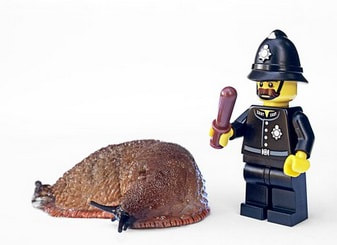 If you stop to think about all this for a moment, you may conclude as I did. Exercising great care in any one area is work. When you extend that work to every area of your life, the task can quickly feel overwhelming. The Apostle Paul counseled, “Let all things be done decently and in order” (1 Corinthians 14:40). King Benjamin taught his people similarly. “And see that all these things are done in wisdom and order; for it is not requisite that a man should run faster than he has strength. And again, it is expedient that he should be diligent, that thereby he might win the prize; therefore, all things must be done in order” (Mosiah 4:27). In other words, we don’t need to be perfect today. But we do need to exercise care by doing something every day to move towards personal improvement. As we exchange our casual approaches to every aspect of life for more careful ones, we will reap a harvest of joy and power from the seeds we have sown daily. And that will bring us more joy in our journey.
 Making conscious choices allows you to overcome the challenges of your life. By breaking you out of autopilot, they break you free of the bonds of a mediocre life. But your life won’t escape mediocrity if you make conscious choices about only a few things. You must make conscious choices about everything. That can burden just as much as the mediocre life your conscious choices helps you overcome. Instead of swapping burdens around, you can leverage the power of habit. By working on your life one area at a time, you can adopt the habit of making conscious choices in a way that tips the balance towards liberating you. For many, personal finances will likely top that list of life areas to reform. New Years resolutions regarding finances enjoy almost as much popularity as losing weight. Plus it’s just hard to feel free in other aspects of your life when this one area has you in bondage. You need not feel imprisoned. Just as you can free yourself from the shackles of old, defunct ways of thinking, you can remove the chains of financial servitude. You can put your house in order. Pay your tithing  The first step is to give the Creator of the universe what He’s marked as His. In so doing, you access the powers of heaven. Given the strong, thick cords that often comprise financial bonds, getting all the help you can just makes sense. In my life, I’ve almost always paid tithing. Yes, I said almost. And yes, there’s a story behind that. When I switched my career to education, I couldn’t find a job. So I made my own by starting a tutoring business. I learned lots in that experience, but I also didn’t make any money. And when you don’t make any money, you don’t pay tithing. I had that business for just over a year — plenty of time to develop a habit of not paying tithing. So when I finally found a job in education, I followed my default habit and didn’t pay tithing. And, as I look back now upon that time, I see I didn’t have the blessings that come with paying tithing. I’ve worked hard to re-establish the habit I once had, and now I’m seeing the blessings from paying tithing. The Lord has provided miracle after miracle in providing me financial support once I first walk by faith and pay my tithing. No financial house can be in order where tithing is not paid. Eliminate your debt  Of course, excessive debt also indicates a financial house out of order. No matter how hard you work, interest will always work harder. Interest never sleeps. Interest never eats. Interest never stops. Just like turning off the faucet stops an overflowing bathtub, the first step to clearing debt is to stop the flow of new charges to your existing debt. This requires a huge amount of discipline which many people don’t have (which is why they have financial problems to begin with). But there’s good news. If you pay your tithing, you can access the powers of heaven to turn things around. I can’t tell you how amazing it felt to write the last check that paid off my student loans. I also remember when I received the title for my car. Those were wonderful moments when I savored freedom. They didn’t come all at once. They came as I exercised the discipline month after month to pay the small portions I could every month. Step by step, I achieved my freedom. Save what you can  Once you get out of debt, it’s best to stay out. And part of that is having enough in store to weather the rainy days that will surely come your way. One accident, one job loss, or one other unfortunate event can quickly bring you back into the bondage of indebtedness. Again, the end result doesn’t happen overnight. You need the discipline month after month to set aside what little you can every month into savings. And you need the discipline not to touch that money outside of legitimate emergency need. I’ve never been a profligate spender, so I’ve always saved by default. Most people aren’t that way; they spend most of what they earn every month. Still, I can see some wisdom in making the conscious choice to set aside a certain amount for savings every month. There’s a difference between simply letting something happen and acting to ensure it happens. In the end, the conscious choices we make in managing our money reveal the discipline we have in managing ourselves. By making the right conscious choices, we can have a house in order. And that will bring us more joy in our journey.
 As 2018 dawned, I had heard about the Church’s new self-reliance initiative but didn’t know much about it. I became more interested upon learning part of it concerned starting a business. Then a self-reliance fireside in my stake was announced from the pulpit, and I went. I learned stakes throughout the Church now hold self-reliance classes every 12 weeks in four areas:
After the presentations, everyone divided into groups based on which area interested them most. In this way, we formed ourselves into class groups. Group members then decided when and where to meet for the next 12 weeks. Now that the 12 weeks are ending, I can’t say enough good things about this new self-reliance initiative. This program can bless everyone to improve upon themselves. But it can also bring joy to LDS singles while making them more attractive for eternal blessings. Throw off frustration and hopelessness  Many LDS singles feel frustration and hopelessness in their pursuit of eternal blessings. Paired with negative self-talk, that frustration and hopelessness can grow to astronomical levels. But it doesn’t have to be that way. Frustration results from having unmet expectations. Change your expectations, and you can avoid frustration. But changing an expectation so it’ll be met doesn’t discard hopelessness. That feeling comes mostly from the sense of lacking motion. It’s easy to feel hopeful when you’re moving in some direction. Even if you don’t know where you’re going, at least you know your destination might be a better place. That’s why I’ve long advocated LDS singles adopt a personal ministry. Working towards worthwhile objectives from a personal ministry provides a feeling of progress many LDS singles aren’t finding in their dating journey. And a personal ministry just might ease that dating journey, because everyone is more attractive when devoted to worthy pursuits. Embrace progression  That’s not the only way to feel a sense of progression. The Church’s self-reliance classes can accomplish the same ends. They align directly with the noble pursuit of improving oneself. I really like the program’s structure. There’s no dedicated instructor. Instead, the Church provides basic materials we all use to learn from one another. Each lesson contains commitments which class members are supposed to keep, and keeping them provides valuable lessons. At the start of each new lesson, class members report on how well they kept their commitments and what they learned from it. Class members are also paired as action partners. Action partners contact each other during the week to provide support for keeping commitments. I really love this model of everyone helping someone else. That’s a great environment for improving oneself. And let’s be honest. Some of us are single because we need to improve ourselves. We need more education or a better job to attract the companion we desire. The Church’s self-reliance program can help there. Bring it all together  Attending my classes, I learned more about how to start a business. But I also learned how intertwined the gospel is into every aspect of our lives. Each lesson begins with a review of foundational principles — gospel standards of living found in the scriptures and the teachings of modern-day prophets and apostles. These foundational principles connect to the rest of the lesson content as well as the commitments we need to complete during the coming week. The Lord cares not just about the spiritual aspect of our lives, but every other aspect as well, including the way we provide for our temporal needs. We can and should partner with the Lord to improve ourselves and our temporal situations. Those who are more self-reliant — and therefore less dependent on others — are able to give more, serve more, and satisfy the needs of more people. Taking my self-reliance class over the past 12 weeks has taught me more than just how to start a business. I’ve learned more about how much the Lord truly loves all of us, how interested He is in the details of our lives, and what glorious potential we can fulfill when we partner with Him in every aspect of our lives. When we do, He’ll make more out of our lives than we can by ourselves. And that will bring more joy in our journey.
 Lately I’ve been talking about the fundamentals of dating because so many don’t understand them. Today I’m addressing one fundamental in particular. But first we need to consider what we’re trying to accomplish. Because dating involves the agency of another person, success in that journey is correlative, not causal. That means we get better results by making ourselves more attractive rather than campaigning directly for it. I’ve tried the direct route before. After years of effort, I can say it just doesn’t work. So now I’m where every LDS single should be — on the correlative train. Instead of pursuing marriage directly, we should live our lives such that others will want to share them with us. We get that kind of life by making ourselves more attractive — physically, emotionally, mentally, and spiritually. Each of these aspects is intertwined with the other three. Take losing weight, for instance. Losing weight of course has physical aspects, but it also has emotional, mental, and spiritual aspects as well. Those who ignore those other three aspects are essentially taking a proverbial knife to a gun fight. Include the physical 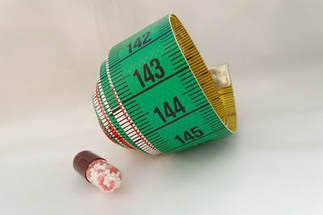 I believe the best solutions are holistic; they consider the whole as well as the individual parts. Losing weight is no different, though I confess it’s been really hard. Losing weight is the Holy Grail of modern life — forever beckoning, and forever elusive. But that just means I don’t understand the fundamentals! For years I tried increasing my understanding of biology. Much of my knowledge here is hard won through research in books and testing in the laboratory of trial and error. That’s how I know if I don’t keep myself fully hydrated, I won’t lose weight. I now drink mostly water whenever I drink anything, starting with a full glass of water when I get out of bed in the morning. Good nutrition is also important. I’ve seen better results with a daily regimen of vitamins and supplements. Yes, it’s better when they come from food, but I haven’t the time to track how much of each vitamin every food I consume contains. It’s much easier to pop a pill and be done with it. You need to find what works for you. Don’t neglect the emotional and mental  Because weight loss is interconnected in its aspects, we can’t focus on just biology. The emotional aspect is of especial concern for LDS singles. Acceptance in LDS subculture depends greatly on whether or not we get married. Thus, failure in our dating journey can easily leave us feeling unaccepted. That’s what makes eating extra food — and especially the foods we shouldn’t eat all the time — so very tempting. They never say no. They never turn us away. And they always make us feel good. At least they do in the moment. Emotional eating always comes back to bite you (pun intended). We’re not likely to lose weight without addressing the underlying emotional issues driving unhealthy eating habits. And let’s not forget the mental aspect of losing weight. If we believe we’re “big-boned” or genetically disposed to carry fat, we’re setting ourselves up for failure. We’ll never put forth the effort as intensely and for as long as we need if we believe any of that. We have to believe before we receive. Emphasize the spiritual  Of all the aspects to consider, the spiritual is the most important. We need to articulate clearly and precisely why we want to lose weight. And that why needs to be powerful enough to carry us through the hard times. The most powerful spiritual drivers are faith-based. We activate that faith when we understand the doctrines and principles behind our objectives. So what’s the gospel doctrine behind losing weight? Certainly the Word of Wisdom comes to mind. And how about the doctrine that our body is a temple? If you considered just that one idea every time you put something in your mouth, what changes would you make to your eating habits? What’s the biggest reason why I’ve struggled with losing weight for so many years? I’ve been approaching it backwards. Even with the holistic nature of my approach, I wasn’t starting with the spiritual aspect. I started with the application — give me the fix I need to make my fat melt away — rather than with the doctrines and principles behind the application. Recently, I’ve picked the torch back up. I’m trying again. So can you. But this time, let’s start our holistic approach with the spiritual. That will bring us better results. And that will bring us more joy in our journey.
|
Author
Howdy! I'm Lance, host of Joy in the Journey Radio. I've been blogging about LDS singles life since 2012, and since 2018 I've been producing a weekly Internet radio show and podcast to help LDS singles have more joy in their journey and bring all Latter-day Saints together. Let's engage a conversation that will increase the faith of LDS singles and bring singles and marrieds together in a true unity of the faith.
Comment
Joy in the Journey Radio encourages the free discussion of ideas but reserves the right to remove and/or block comments which do not conform to LDS standards.
Donate
Joy in the Journey Radio offers many free resources to help LDS singles everywhere, but it certainly isn't free! Help Joy in the Journey Radio in its mission to improve the lives of LDS singles by donating today.
Posts by Month
December 2022
Categories
All
|
|||||||||||||||||||||||||||||||||||||||||||||||||||||

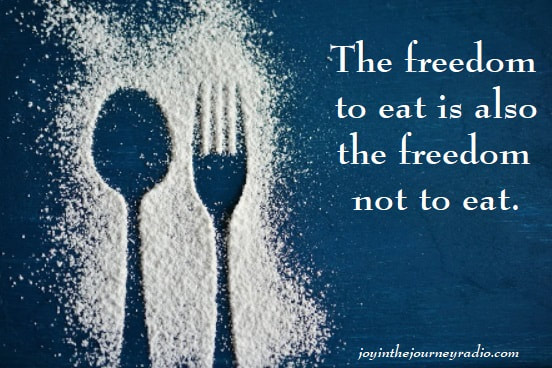

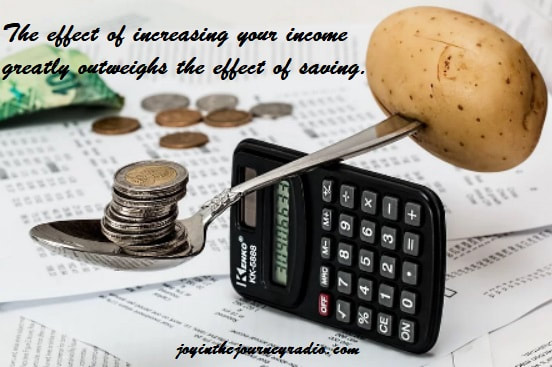

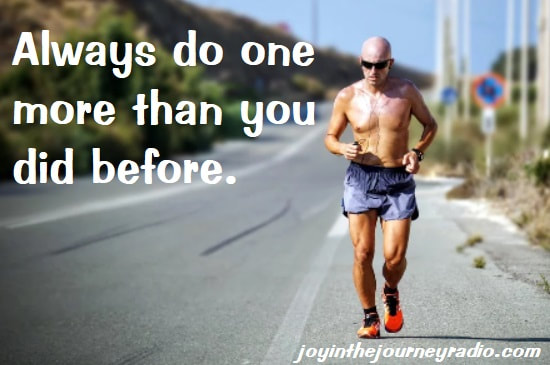

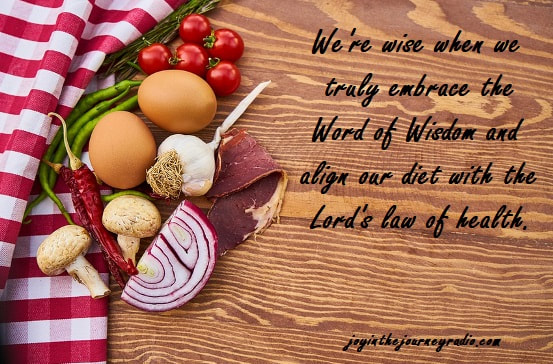


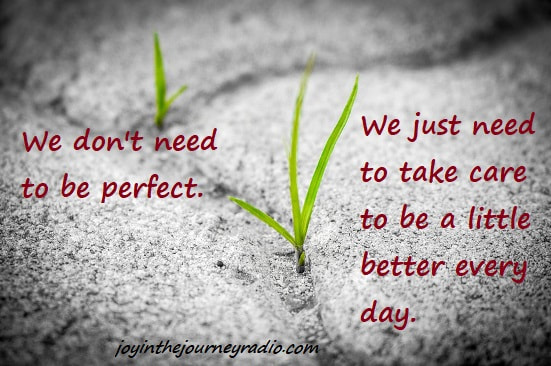
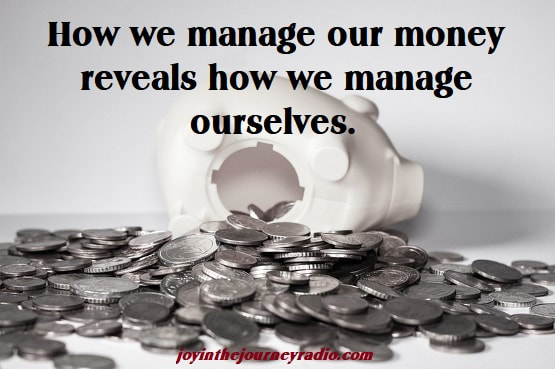
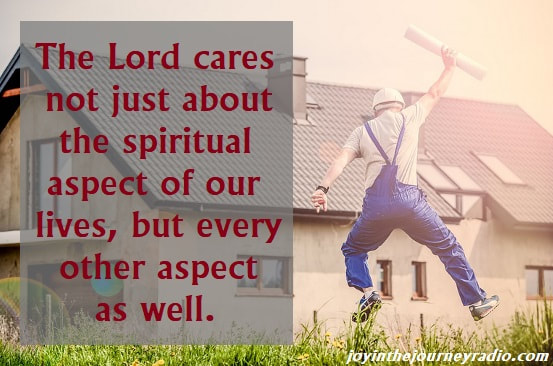

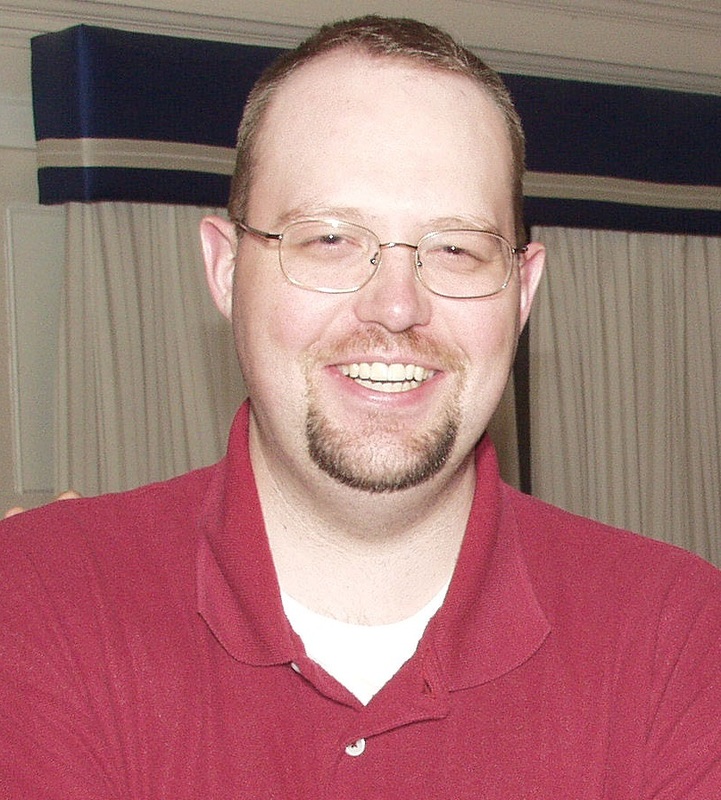
 RSS Feed
RSS Feed